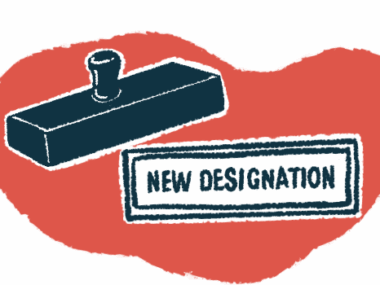Aucatzyl, a cell therapy, approved in US for adults with advanced B-ALL
Majority of 65 patients treated in clinical trial achieved disease remission
Written by |

The U.S. Food and Drug Administration (FDA) has approved the cell therapy Aucatzyl (obecabtagene autoleucel) to treat adults with relapsed or refractory precursor B-cell acute lymphoblastic leukemia (r/r B-ALL).
“We are so pleased to now be able to offer Aucatzyl, our first commercial product, to adult r/r B-ALL patients in the U.S.,” Christian Itin, PhD, CEO of Autolus Therapeutics, which developed the therapy, said in a company press release. “This approval would not have been possible without the support of all the patients, their families and caregivers, their treating physicians and the nurses and investigators at the treatment centers — thank you.”
Precursor B-cell acute lymphoblastic leukemia is a type of blood cancer caused by the uncontrolled growth of certain immune cells. Being relapsed or refractory means the cancer has either been resistant to treatment (refractory), or it has worsened after initially responding to treatment (relapsed).
ALL in adults is known to be aggressive, with high unmet medical needs
FDA approval was based on data from a global Phase 1/2 clinical trial called FELIX (NCT04404660), in which Aucatzyl was used to treat adults with r/r B-ALL. Of the 94 patients who received at least one infusion of the cell therapy, 65 met criteria to be evaluated for efficacy.
The study’s main goal was to determine how many patients achieved disease remission following treatment. Results showed nearly two-thirds (63%) of the evaluable 65 patients achieved overall complete remission. Nearly half (42%) achieved complete remission within three months, and the median duration of remission was 14.1 months — meaning most patients reaching remission remained in remission for more than a year.
“Adult ALL is an extremely aggressive cancer, and there is a high unmet medical need that exists in the treatment of patients with this disease once they relapse, where historically they suffer from poor outcomes,” said Elias Jabbour, MD, an investigator on the FELIX study and a professor at The University of Texas MD Anderson Cancer Center. “This milestone approval, based on the demonstrated clinical benefit of Aucatzyl, brings new hope for adult patients with relapsed/refractory B-ALL.”
Aucatzyl is an autologous CAR T-cell therapy. In this type of therapy, T-cells (a type of immune cell) are harvested from the patient, then engineered in a laboratory to equip them with a chimeric antigen receptor or CAR, which is a human-made protein that directs the T-cells to attack a specific target. The modified T-cells then are infused back to the patient where they can attack cancer cells.
Aucatzyl specifically utilizes a CAR that targets the protein CD19, which is expressed by cancer cells in B-ALL. The therapeutic cells will be manufactured at Autolus’ dedicated facility in Stevenage, England, and the company is making arrangements for the therapy to be commercially available in the US.
‘Highly active’ treatment for precursor B-cell acute lymphoblastic leukemia
CAR T-cells are potent treatments that can be highly effective in destroying cancers, but they tend to have fairly steep safety profiles. Like most treatments in its class, Aucatzyl’s prescribing information carries a boxed warning noting that it may cause cytokine release syndrome (CRS) and immune effector cell-associated neurotoxicity syndrome (ICANS), which are inflammatory reactions that can be life-threatening in severe cases.
In the FELIX study, CRS occurred in 3% of patients and ICANS was reported in 7% of patients. The boxed warning also notes that T-cell cancers have occurred in people treated with CAR T-cell therapies like Aucatzyl.
Despite requiring a boxed warning for the therapy, the FDA notably did not demand that Aucatzyl be available only through a risk evaluation mitigation strategy (REMS), which is a program used to monitor treatments that can cause very serious side effects. According to Autolus, Aucatzyl is the first CAR T-cell therapy to win FDA approval without the requirement for a REMS.
“Based on the experience in the FELIX trial Aucatzyl is highly active and can be well managed, offering an attractive risk benefit profile for B-ALL patients,” said Claire Roddie, MD, PhD, lead investigator of the FELIX study and a hematology professor at the University College London Cancer Institute. “In the FELIX trial Aucatzyl has shown long term persistence and deep responses which we believe are critical for long term remissions in B-ALL.”
Autolus also has applied for Aucatzyl’s approval with the European Medicines Agency, the health regulatory agency for the European Union, followed by an approval request filed with the Medicines and Healthcare products Regulatory Agency in the U.K.




